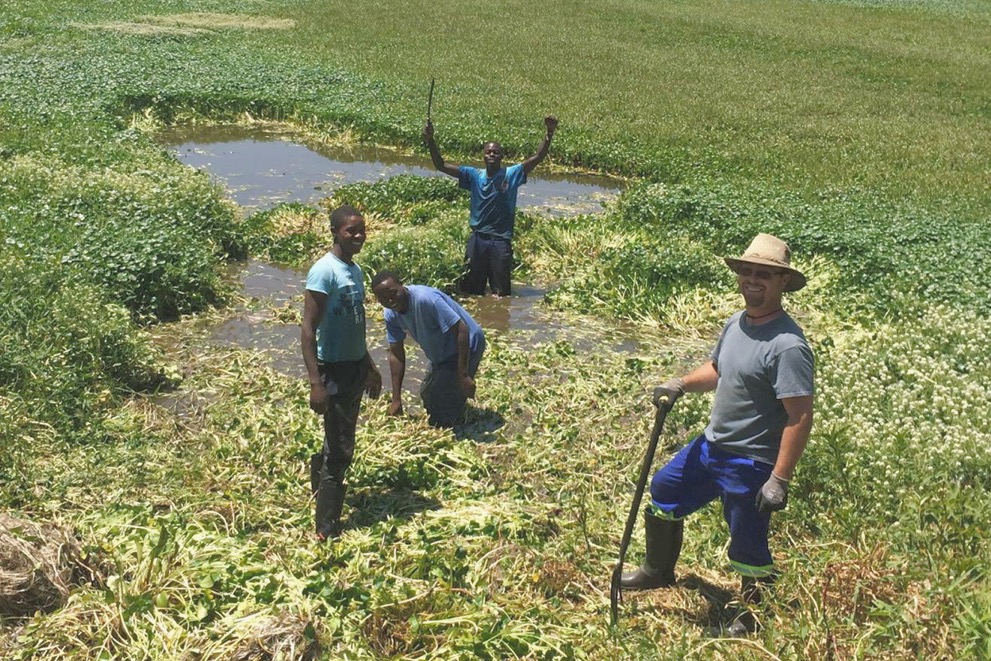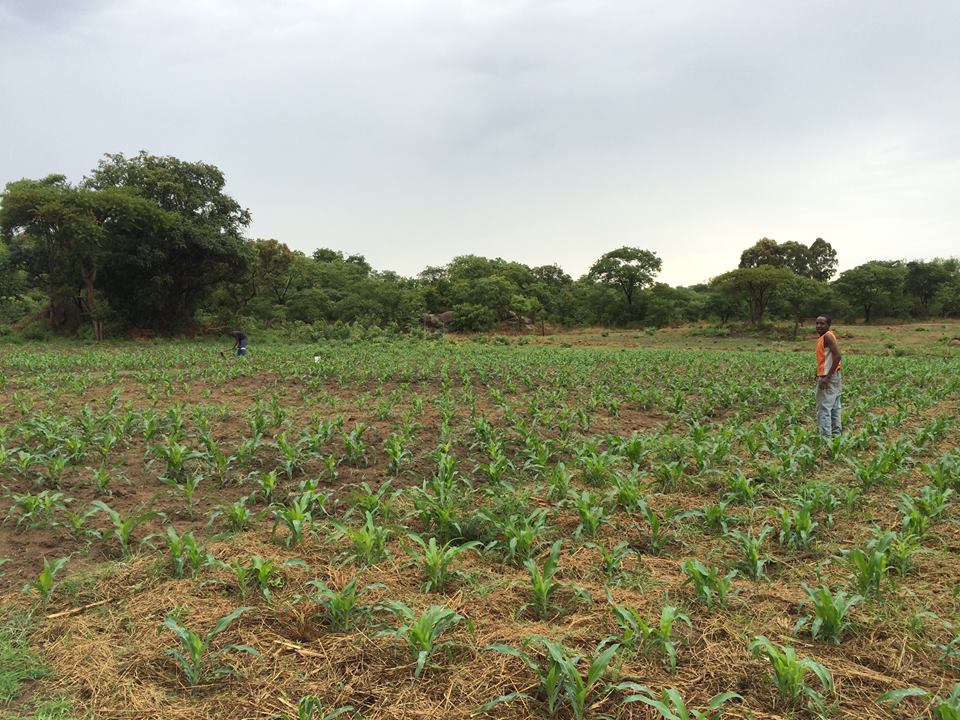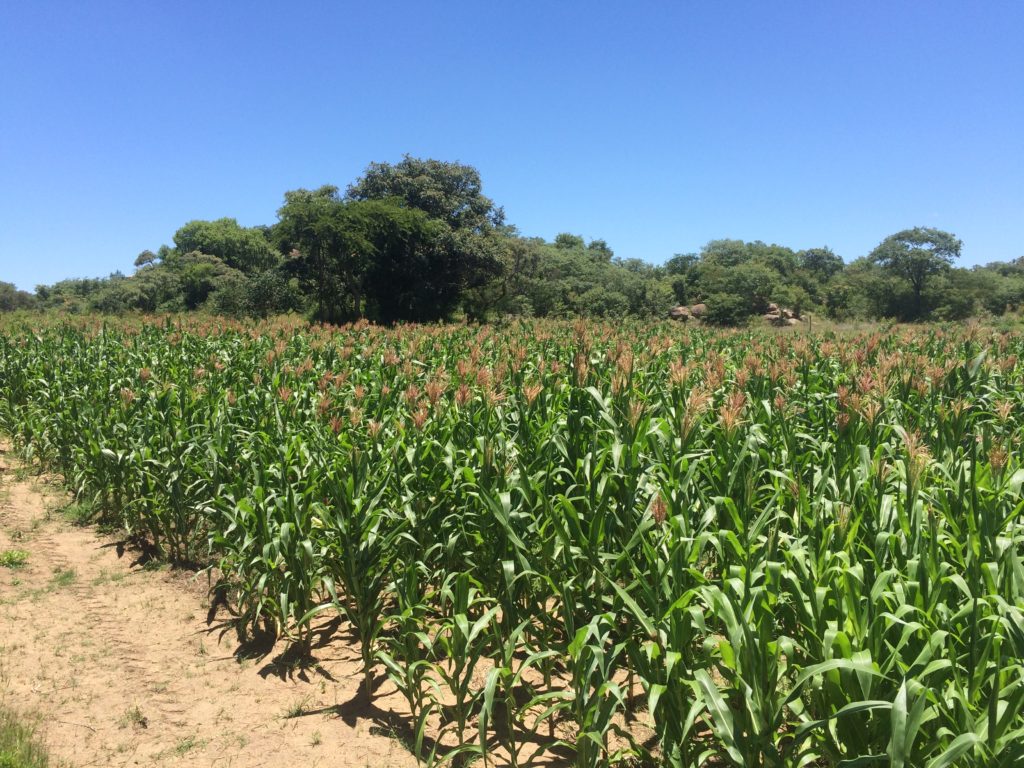
Ministry Updates
Planting a Future for Zimbabwe’s Aged-Out Orphans
May 24, 2016
by admin

“How can you go back and help the children of the very people who took your family’s livelihood?” a supporter asked TEAM missionary Anthea Love before she left for Zimbabwe.
A missionary’s departure for the field doesn’t usually prompt questions about bitterness. But then, most missionaries aren’t returning to the nation where their family lost everything.
Sixteen years ago, in an effort to right colonial-era wrongs, Zimbabwe president Robert Mugabe introduced land reform that seized 4,000 white farmers’ land. Among those farmers were Anthea’s parents.
With a mix of corruption and poor execution, the redistribution project led to the collapse of the nation’s agricultural economy. Today, black and white farmers alike are worse off than before. But for Anthea, that’s a large part of why she’s back today, along with her American husband, Steve, and three children.
“It was very traumatic,” Anthea said, “but for me, I’ve always … known I would go back and work with the people of Zimbabwe.”
Prostitution, Drugs or Theft
Some of those hit hardest by the economic collapse were Zimbabwe’s children, over a million of whom have been orphaned by AIDS alone.
Before coming to Zimbabwe, Anthea and Steve had both worked in youth ministry, so they naturally gravitated toward kids. But after doing some research, they realized organizations put a lot of focus on children and babies, but there was very little for orphans in Zimbabwe once they aged out of the system.
“Once they reach 16, they’re out. They’re on the street again,” Anthea said.
In a nation with an unemployment rate estimated anywhere from 4 to 95 percent, many grown orphans turn to prostitution, drugs and theft for survival.
When the Loves shared their growing passion for aged-out orphans, TEAM told them about a partner ministry called Hands of Hope, which ran 18 orphan homes, fed about 1,800 children every day through its food program — and wanted to develop a skills training program for young adults, starting in the area of agriculture.
As soon as the Loves heard about the new program, Habitation of Hope, they knew they had found their assignment.

Arnold and Tapiwa are two young men who were orphaned and came from Hands of Hope to join the agricultural apprenticeship program. To grow the maize pictured here, they used sustainable farming methods that can be reproduced in rural areas without the need for conventional machinery or fertilizers.
Building a Life After Tragedy
As a 20-year construction worker, Steve’s agricultural knowledge was just as limited as the students’ when he arrived in Zimbabwe, but local professionals have brought him up to speed. And though Anthea’s current ministry focus is on their children and other parents at school, she’s passed on what her farmer father taught her.
Today, Habitation of Hope is 24.7 acres of maize and sugar bean fields, greenhouses, aquaponics systems and a chicken run. On an ordinary day, you can hear the singing and laughter of eight young adults from two tribes.
Each student has their own story of tragedy: A young man and his sister — both diagnosed with AIDS — spent their childhood being passed from one abusive relative to the next, experiencing severe malnutrition and beatings. Another last saw his absentee mother when he was 14 and starting the first grade. She beat him in the head with a hoe because he couldn’t spell his last name.
But Habitation gives all of them the chance to build a different future — one where they are valued, loved and capable of providing for themselves and their families.

From this 2.5 acre field, the team was able to harvest six tons of maize that will help feed the orphans at Hands of Hope.
A Fusion of Work and Spirituality
The program is designed to last two years, teaching students sustainable farming methods and letting them experience the full farming cycle of planting, harvesting and selling at local markets. By the end, they should be able to take care of their families’ fields or even teach as instructors at Habitation.
Additionally, the Loves hope students will come out with a deeper understanding of who Jesus is and that their spiritual and work lives should be fused together.
“We try not to separate [discipleship and training],” Steve said. “We open our mornings in prayer. When we talk about budgeting, we use the Scriptures. When we talk about farming, we use the Scriptures. When we talk about our work on machines, we use the Scriptures.”
While that might feel forced in some cultures, discussing big life questions while feeding chickens or repairing lawn mowers comes naturally in Zimbabwe.
“The Shona culture is a very relational culture,” Anthea said. “You’re always talking, and you don’t start the day unless you ask everybody in the family, are they well, did they sleep well. Everything else waits.”
Sometimes those conversations reveal room for growth in the program. When the students received their first paychecks, Steve taught a basic budgeting class. But when one student calculated all his needs, including his sister’s school fees and medical expenses, he was left with one dollar for the month.
“How do I budget that?” he asked.
So now, Steve sits down with each of the students to work out individual budgets, and he’s working with a local finance ministry to learn more about teaching low-income budgeting.
Open Doors
As the Loves look to the future, they see budgeting as just one of many opportunities for improvement. They hope to see the program become self-sustaining by selling food back to Hands of Hope’s feeding stations and selling cash crops to local vendors and the community.
Beyond farming, they’re looking to connect with a local man who does computer training. They plan to teach sewing once they’re equipped with machines. And Anthea is already looking into how they can train students in medicinal herbs.
“There’s so many opportunities with the skills training developing and growing,” Anthea said. “It’s gonna open a lot more doors. … The resources are here. The people are here.”
One class at a time, hope is coming back to Zimbabwe.
Watch this video to learn more about how sustainable agriculture is planting seeds for the gospel in Zimbabwe. For more information on creation care ministries at TEAM, click here.
Related articles


